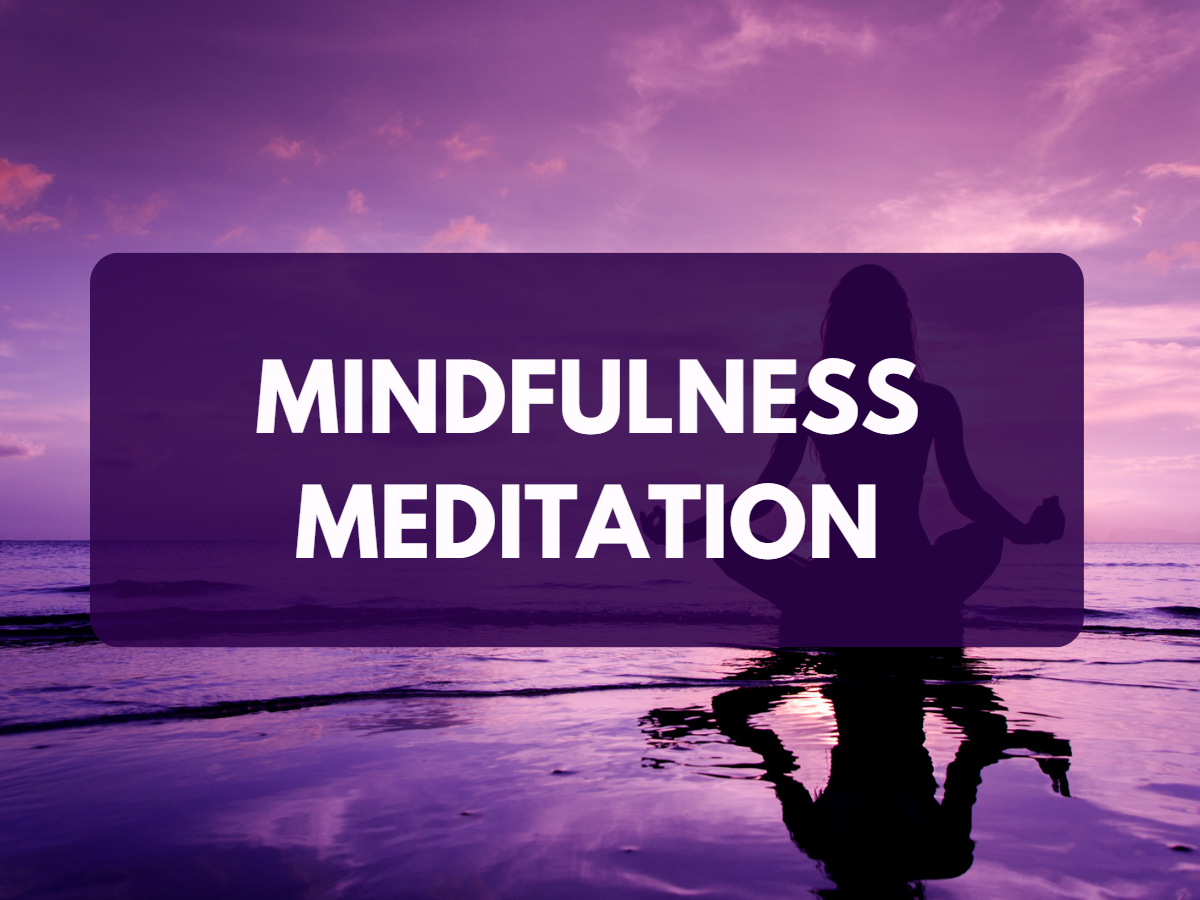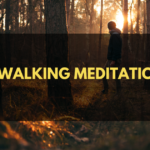Mindfulness Meditation: The Power to Change Lives
Mindfulness meditation has been gaining popularity recently, and for a good reason!
It’s a powerful practice that has the potential to transform lives.
Mindfulness meditation is an accessible way to cultivate personal growth and foster meaningful connections with yourself and others.
In this post, we’ll explore how mindfulness meditation can help you make positive changes.
Let’s jump right in!
What is Mindfulness?
Mindfulness is an awareness of your thoughts, feelings, and physical sensations in the present moment.
But it’s much more than just being aware. When you practice mindfulness, you cultivate an attitude of acceptance and openness to whatever experience arises.
And it can help you bring greater clarity and insight into your life so that you can respond to challenges easily.
But please note that mindfulness isn’t about being happy all the time or pretending like life’s difficulties don’t exist – it’s simply about becoming aware of our habits, patterns, and reactions and working with them rather than against them.
What is Mindfulness Meditation?
Mindfulness meditation is a type of meditation that focuses on training the mind to become more aware and present in the moment.
It involves being mindful and taking notice of thoughts, feelings, sensations, and the external environment.
During mindfulness meditation, you focus on each breath you take, allowing your thoughts and feelings to pass through without judgment or attachment.
Through regular practice, you can learn to cultivate a state of mental awareness that helps reduce stress and anxiety, improve concentration, and increase emotional resilience.
And you know what?
Mindfulness meditation can also help you to be kind to yourself and others by developing greater self-compassion and understanding.
We’ll talk more about mindfulness meditation benefits in a moment.
Now let’s have a quick overview of its history.
What is the History of Mindfulness Meditation?
Mindfulness meditation has been around for centuries, with roots in the ancient Indian Buddhist tradition.
The concept is derived from the Pali word sati, which can be translated as “awareness” or “remembering.” This practice is meant to help people become more present and aware of their thoughts and feelings throughout the day.
During the twentieth century, mindfulness meditation entered mainstream Western culture.
Its popularity exploded in 1979 with Jon Kabat-Zinn’s book, Full Catastrophe Living, introducing concepts such as controlling stress and physical pain through mindfulness techniques.
What are the Benefits of Mindfulness Meditation?
The benefits of mindfulness meditation are endless, and it is becoming popular for good reasons.
Mindfulness meditation for anxiety and stress reduction
Mindfulness meditation could be a great option if you’re looking for ways to manage stress or anxious feelings.
Research shows that it can help regulate emotions by helping people learn how to respond rather than react in any situation.
This means that instead of automatically reacting negatively when faced with certain situations or triggers, one can pause and decide the most effective course of action.
Mindfulness meditation sleep
Mindfulness meditation can be a great way to prepare the mind for bedtime.
Practicing regularly can improve sleep quality and help you get more restful sleep.
Studies have shown that mindfulness meditation is an effective tool for improving sleep quality and lessening insomnia symptoms.
Improved mental health
Research has shown that mindful practices can help reduce stress, improve mood, and increase overall well-being.
Mindfulness involves being aware of our thoughts without judging or reacting negatively. This can help us better recognize negative patterns in our thinking so we can respond positively.
Improved physical health
Mindfulness has many physical benefits that can be used to treat both mental and physical health issues. With regular practice, mindfulness can help:
- Relieve stress
- Treat heart disease
- Lower blood pressure
- Reduce chronic pain
- Improve sleep quality
- Alleviate gastrointestinal problems
Improved cognitive functioning and self-awareness
It’s no secret that mindfulness meditation can profoundly affect your well-being.
Mindfulness meditation helps you become more mindful of your thoughts and feelings and can improve cognitive functioning and self-awareness.
Studies have found that mindfulness meditation practices help people to focus better, increase their mental clarity and, in turn, enhance their overall cognitive performance.
Mindful breathing techniques, for example, are an effective way to improve concentration.
Furthermore, research suggests that engaging in regular mindfulness activities may improve our ability to make sound decisions and increase our capacity for learning new information.
Mindfulness also encourages compassion toward ourselves and others, helping us develop greater self-awareness and leading to healthier relationships with ourselves and those around us.
How to Practice Mindfulness Meditation
Mindfulness meditation is valuable for cultivating mental, physical, and emotional well-being.
And learning how to practice mindfulness meditation can help you to respond more calmly and effectively to stress, improve your focus and concentration, and foster greater self-compassion.
Here are four tips for beginners on how to practice mindfulness meditation:
Find a Quiet Location and Time:
To start practicing this form of meditation, first find a comfortable, quiet, and peaceful spot with minimal distractions where nobody can disturb you for 10-15 minutes.
Set aside some time each day – it doesn’t have to be long – when you can dedicate yourself solely to practicing mindfulness without any other commitments getting in the way.
Focus on Your Breath or Body Sensations:
Sit comfortably with your eyes closed and focus on your breath or body sensations.
Don’t worry about clearing your mind — it’s not possible!
Just observe what’s happening in your body without judgment or trying to change it.
Allow Your Thoughts and Feelings to Come and Go without Judging Them:
During mindfulness meditation, don’t try to fight any thoughts that come up during your session — simply allow them to pass by as if they were clouds in the sky.
Remain Open to the Present Moment without Attaching to It
Remember, the goal is to become aware of the present moment without getting lost in regret or anticipation of what will come next.
Why?
As you become aware of each thought or feeling that arises, notice it but don’t attach yourself to it by letting yourself get caught up in rumination or worry about the future.
This mindful state allows for inner stillness and peace that helps reduce stress and anxiety.
How Often Should You Do Mindfulness Meditation?
The answer is that how often you practice mindfulness meditation depends on your personal goals and needs.
If you’re just starting the practice, experts recommend 20 minutes of mindfulness meditation twice daily for maximum benefits.
This may sound like a big commitment, but remember that you can practice for a maximum of 20 minutes at a time!
It’s just as beneficial to split your practice into two 10-minute sessions — once in the morning and once in the afternoon.
As your skills improve over time, you can gradually increase the time spent meditating until it eventually becomes part of your daily routine.
Suppose this isn’t possible due to time constraints or other commitments. There are plenty of ways to integrate mindfulness into daily activities, like walking, listening to music, and eating meals.
Even if you’re short on time, 10 minutes of mindfulness meditation daily is still highly beneficial.
This can help reduce anxiety and stress by helping you become more present and focus on what matters most.
Final thoughts
Mindfulness can be practiced anywhere, anytime, so there are no excuses not to try it!
Remember, it is a skill that takes time and practice to develop. But with patience and consistency, you can experience many benefits of this transformative practice.
Taking 15 to 20 minutes out of your day to practice mindfulness is an investment in yourself that will reap rewards.
So why not try it and see what mindfulness meditation can do for you?
Frequently Asked Questions
Where should I do mindfulness meditation?
Mindfulness can positively impact your life, from reducing stress to improving overall well-being.
But where should you do it?
One of the best places to do mindfulness meditation is in the comfort of your own home.
In addition to being free and easily accessible, meditating at home allows you to create an environment that works for you — from picking out soothing music or lighting candles to finding a comfortable spot on the floor or couch.
If meditating solo isn’t your cup of tea, plenty of classes are available in most cities and towns.
Whether through a yoga studio, community center, or even online, there are many options for finding an instructor who can guide you through different mindfulness exercises.
When should I do mindfulness meditation?
Many people consider the morning hours to be ideal for mindfulness meditation.
At this time, your mind is usually fresh and quiet, making staying focused on your practice easier.
Plus, you’re less likely to doze off in the middle of a session!
To get the most out of your mindful meditation sessions, try setting aside a few moments in the morning before starting your day.
Doing meditation in the morning also means you’re far less likely to doze off during your practice.
You know our bodies are naturally set up to be more alert first thing in the morning, so you’ll get the maximum benefit from your practice.
If morning doesn’t work for you, any other time can still be great, depending on your needs and preferences.
Afternoon or evening sessions can also provide a great way to relax after a busy day or wind down before sleep, respectively — just ensure you have enough energy left after a long work day!







